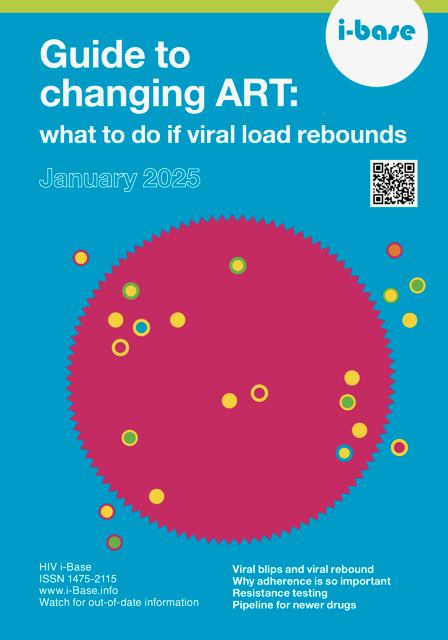Introduction
 This resource is mainly about changing HIV treatment (ART) because of drug resistance.
This resource is mainly about changing HIV treatment (ART) because of drug resistance.
This covers about 50 pages online (many of them are short). The PDF booklet is an 8-page summary with QR code links to the online sections.
The information covers:
- When you might need to change ART.
- Why you might need to change ART.
- Which tests are used and what the results mean.
- How to choose your next meds.
- How to make sure the next treatment will work.
It also includes:
- Drug resistance.
- New drugs and other research.
This 17th edition has been revised and updated throughout.
- ART in the UK is now very effective. Only about 1 in 20 people (5%) need to change their first treatment because it does not work.
- Also, less than 1 in 20 people (5%) who are on stable treatment need to change each year due to resistance.
- Even with drug resistance, most people still have new drugs that will work.
- Lenacapavir is a 6-monthly injection that is also available for emergency use. This is only if you have extensive drug resistance. Lenacapavir needs to be used with other active meds.
- Fostemsavir and ibalizumab can be used if you have drug resistance to all other classes.
- Other pipeline drugs are being developed that can overcome resistance to current HIV meds.
This online guide includes detailed information.
A related printed leaflet just includes a summary with links to the website.
The information is based on choices in the UK, Europe and the US.
Information is based on treatment guidelines at this link:
i-base.info/treatment-guidelines
Although choices will be more limited in many other countries, the approach will still be similar.
Changes to this edition
The main changes are:
- Updated information about the latest drugs and about ongoing research.
- New information about the WHO guidelines for people living in low- and middle-income countries.
- Information is included about long-acting injectable ART. This might be an important option if you have difficulty taking daily pills.
Last updated: 1 January 2025.
